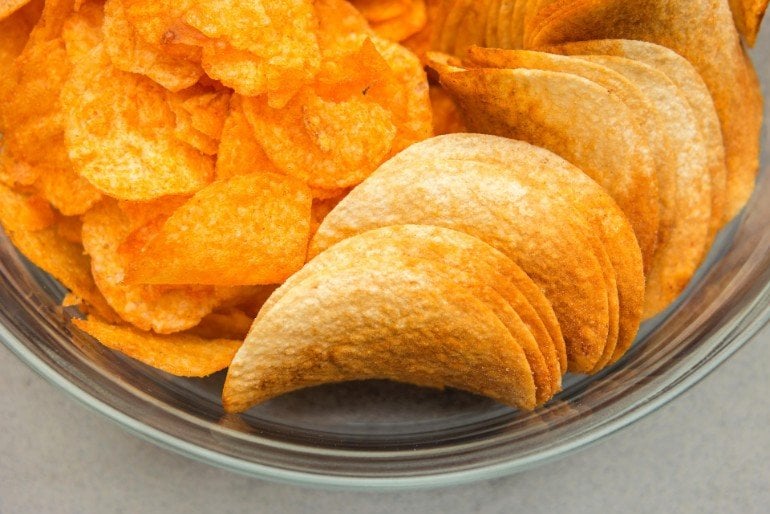Summary: People are better able to recall the location of high-calorie foods over healthier options. Findings suggest spatial memory may have evolved to prioritize the location of higher-calorie foods.
Source: Scientific Reports
Humans more accurately recall the locations of high calorie than low calorie foods, according to a study in Scientific Reports. The findings suggest that human spatial memory, which allows people to remember where objects are in relation to each another, has evolved to prioritize the location of high calorie foods.
Rachelle de Vries and colleagues measured food location memory by instructing 512 participants to follow a fixed route around a room containing either eight food samples or eight food-scented cotton pads placed in different locations.
When participants reached a sample, they either tasted the food or smelled the cotton pad and rated how much they liked the sample.
Food and odor samples included apple, potato chip, cucumber, and chocolate brownie. Participants were then asked to indicate the location of each food or food odor sample on a map of the room.
Participants presented with food samples were 27% more accurate and those presented with food odour samples were 28% more accurate at mapping high than low calorie foods to the correct location.
Spatial memory was not affected by whether foods were sweet or savory or how much participants liked each sample. Overall mapping of foods was 243% more accurate when participants were presented with food samples rather than food-scented cotton pads.

The findings indicate that human spatial memory is biased towards locating high-calorie foods. This bias could have helped human ancestors to survive in environments with fluctuating food availability by enabling them to efficiently locate calorie-dense foods through foraging, according to the authors.
About this memory research news
Source: Scientific Reports
Contact: Deborah Kendall-Cheeseman – Scientific Reports
Image: Image is in the public domain.
Original Research: Open access.
“Human spatial memory implicitly prioritizes high-calorie foods” by Rachelle de Vries, Paulina Morquecho-Campos, Emely de Vet, Marielle de Rijk, Elbrich Postma, Kees de Graaf, Bas Engel & Sanne Boesveldt. Scientific Reports.
Abstract
Human spatial memory implicitly prioritizes high-calorie foods
All species face the important adaptive problem of efficiently locating high-quality nutritional resources. We explored whether human spatial cognition is enhanced for high-calorie foods, in a large multisensory experiment that covertly tested the location memory of people who navigated a maze-like food setting. We found that individuals incidentally learned and more accurately recalled locations of high-calorie foods – regardless of explicit hedonic valuations or personal familiarity with foods. In addition, the high-calorie bias in human spatial memory already became evident within a limited sensory environment, where solely odor information was available. These results suggest that human minds continue to house a cognitive system optimized for energy-efficient foraging within erratic food habitats of the past, and highlight the often underestimated capabilities of the human olfactory sense.






